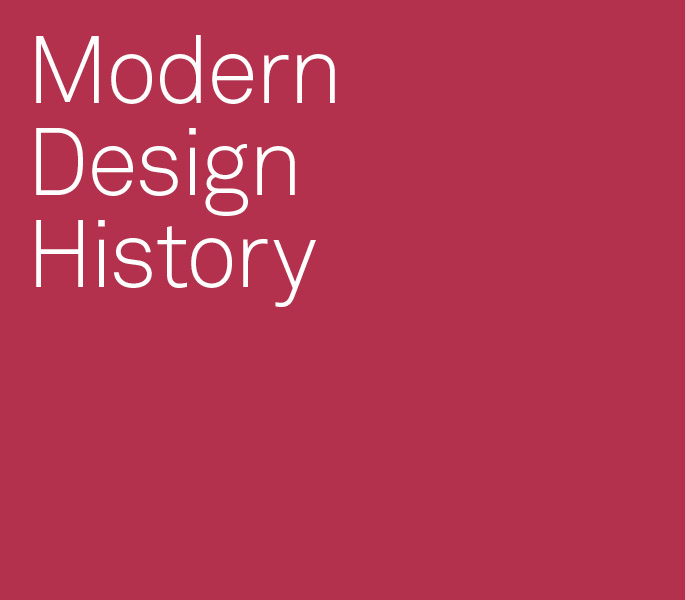|
|

|
|
|
Alison J. Clarke, our next scholar-in-residence, will join us in-person from Monday, April 4 to Friday, April 8. She will meet with students and faculty, visit a course, and present an informal seminar to the BGC community, in addition to presenting at the Modern Design History Seminar.
Professor Alison J. Clarke joined the University of Applied Arts Vienna from the Royal College of Art, London. She chairs the Department of Design History and Theory, is founding director of the Papanek Foundation, and convenes the biennial Papanek Symposium exploring the ethics and futures of contemporary design. As a design historian (Royal College of Art/Victoria and Albert Museum, London) and trained social anthropologist (University College London), her research explores the intersection of design, material culture, and anthropology. Recipient of major international grants and fellowships (including the Smithsonian; Arts and Humanities Research Council; Austrian Science Fund; Graham Foundation), she acts as an expert advisor and jury member for numerous academic bodies including the Danish Independent Research Council and the German Research Foundation (DfG) program, Clusters of Excellence.
Professor Clarke is a regular media broadcaster and international speaker in the field of design; her monograph Tupperware: The Promise of Plastic in 1950s America was optioned for an Emmy-nominated documentary. Her most recent publications include Victor Papanek: The Politics of Design (MIT Press), Design Anthropology: Object Cultures in Transition, and the co-edited volume Émigré Cultures in Design and Architecture (Bloomsbury). She is co-founder of Home Cultures: The Journal of Architecture, Design, and Domestic Space and has recently curated (with Vitra Design Museum, Germany) the international traveling exhibition Victor Papanek: The Politics of Design (2017–2020). Her latest book project, for MIT Press, explores the historical origins and legacies of the intertwining of social science and industrial design.
|
|
|
|
Classroom Visit
Monday, April 4, 1:30–4 pm
38 West 86th Street, Lecture Hall
Alison J. Clarke will join “Craft and Design in the USA 1945–Present” with Professor Catherine Whalen.
|
|
Community Coffee Hour
Monday, April 4, 4–5 pm
38 West 86th Street, Lobby
All students, faculty, and staff are invited to attend an informal gathering with Alison J. Clarke. Light refreshments will be served.
|
|
|
|
|
Modern Design History Seminar
“Design Anthropology: Industrial Design and the Project of Post-War Development”
Tuesday, April 5, 6–7:30 pm
38 West 86th Street, Lecture Hall
This talk examines the emergence, in 1950s Cold War United States, of a mode of transdisciplinary design that sought to meld anthropological method and aesthetic styling with the overt objective of implementing “design as a political force” (as one Industrial Design magazine feature aptly described it). Ethnographic fieldnotes in hand, cameras swinging jauntily around their necks, corporate industrial designers were parachuted into incongruously low-tech environments across a range of recently decolonized “developing” nations. Prototypical design anthropologists, they operated as a new breed of diplomats-cum-propogandists, disseminating what was described as a “penetrating program” of American regeneration policies that melded social science to a corporatized vision of how local cultures might be stimulated into increased product consumerism and recolonized as part of the project of Western expansionism. Rebranded in the twenty-first century as design anthropology, this “force,” or anthropological interpretation applied to designing of human behavior, has arguably come to operate as the invisible hand behind multiple facets of global life from health care provision to governance and data harnessing. Clarke focuses on the mid-century origins of this phenomenon, acknowledging the legacy of early design anthropology as a part of post-war development policy whose legacy resides in aspects of design practice today.
RSVP Here
This talk will be accessible via Zoom in addition to being held in-person at 38 West 86th Street.
|
|
Brown Bag Lunch
“The Democratic Object: Between Decorative Arts and Design Radicalism in 1960s Finland”
Wednesday, April 6, 12:15–1:15 pm
38 West 86th Street, Lecture Hall
In late 1960s, a radical design movement fueled by anti-consumer youth protest challenged the apoliticism of the decorative arts traditions that had come to define Finnish national design identity. In the post-war period, iconic mass-produced objects, such as those produced by Marimekko and Artek, had been routinely exported and exhibited alongside the decorative arts as part of a manufactured brand of Nordic democratic liberalism mediated through the prism of Cold War US geopolitics. The new pan-Scandinavian design movement rejected the decorative arts and iconic Finnish brands, advocating instead systems-thinking, bionics, and dematerialized, decolonized models of design; calling for a wholesale dismissal of the aesthetic legacy and “good design for all” ethos that had bound together the previous generation of Nordic and Scandinavian designers. This talk, based on extensive archival and oral history research, examines the battle over design’s societal role in 1960s Finland, shedding light on the ways in which a hand-picked group of US design figures (ranging from the little known African American visual artist and designer Howard Smith to the celebrated architect and technocrat Buckminster Fuller) was instrumentalized to promote a forward-looking vision of design tied to successful capitalist (rather than socialist) economies, ultimately aiming to mollify the surge of politicized countercultural activity in a region deemed perilously close to Soviet influence.
RSVP Here
This talk is only open to the BGC community and will be accessible via Zoom in addition to being held in-person at 38 West 86th Street.
|
Upcoming 2021-22 Residencies
Monday, April 11 to Friday, April 15, 2022: Bénédicte Savoy
Monday, April 18 to Friday, April 22, 2022: Carlo Ginzburg
Monday, May 2 to Friday, May 6, 2022: Shamil Jeppie
|
|
COPY AND PASTE CODE BELOW TO MAILCHIMP
|